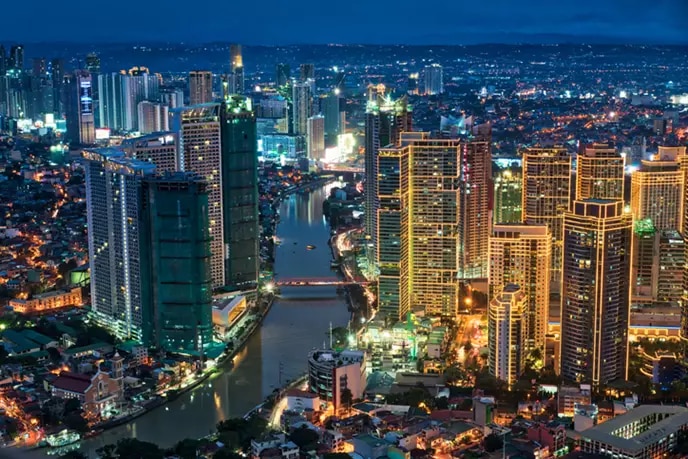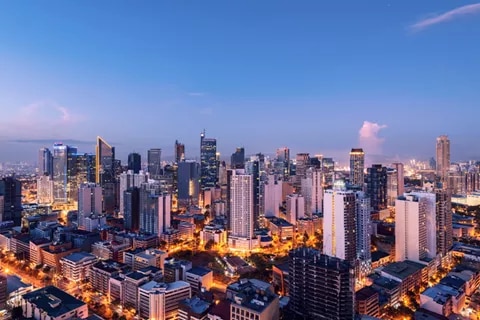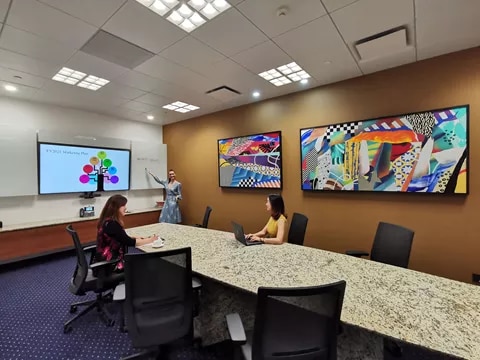Everything You Need to Know About the Philippines Digital Nomad Visa
By Joshua Lim

The Philippines officially launched a game-changing initiative for remote workers and foreign nationals. On April 24, 2025, Executive Order No. 86 established the Philippines Digital Nomad Visa, opening doors for those who work remotely to live and explore business opportunities in the Philippines.
If you're among the growing number of remote workers considering where to base your operations, the Digital Nomad Visa Philippines offers a low-cost pathway to reside in the country while maintaining your overseas clients. Non-immigrant foreign nationals can now submit applications to establish presence without traditional local employment restrictions. You'll have the ability to test markets, save on infrastructure costs, and grow your freelance work or small business at your own pace.
This comprehensive guide shows you exactly how to leverage the digital nomad visa alongside coworking spaces and flexible workspace solutions. Whether you're an employee working remotely or running your own company, you'll learn the application process, required documents, and smart strategies to make the Philippines your next business base.
Understanding the Digital Nomad Visa Philippines Framework
Executive Order No. 86 represents the government's strategic initiative to attract digital nomads and remote employment opportunities. The Department of Foreign Affairs officially launched the program, coordinating with the Bureau of Immigration, Department of Tourism, and other agencies to support foreign nationals seeking extended stays.
Here's what matters for your planning:
Visa holders receive up to one year initially, renewable for an additional year—giving you up to two years total to explore opportunities. The Philippine Foreign Service Posts will process applications, with the embassy in your home country serving as your primary contact point. The government announced implementation within 60 days of the April 24 effective date, with tourism officials expecting significant economic impact.
The program's introduction shows the Philippines understands remote workers need clear pathways without complex contracts or local employment requirements. You can present your case, submit required documents online or at Philippine Foreign Service Posts, and potentially receive multiple entry privileges. The initiative creates an ecosystem where digital nomads can thrive alongside established companies, with the possibility to review your business model while maintaining international clients.
Philippines Digital Nomad Visa: Qualification Requirements
The Digital Nomad Visa Philippines launched with clear criteria for remote workers and foreign nationals. You'll need to prove your ability to work remotely using digital technology, demonstrate sufficient income generated from foreign sources, and show proof of remote employment or client contracts. Don't wait to gather these documents—preparation speeds approval.
Key requirements include:
- Clean criminal record from your home country
- comprehensive health insurance for your entire stay
- evidence you're employed by overseas employers or serve international clients.
- You must be at least 18 years old and show sufficient income to support yourself without seeking local employment.
- The exact income threshold focuses on sustainability—you'll need to prove consistent earnings rather than massive revenues.
Most importantly, visa holders cannot be employed by Philippine companies or directly serve Philippine clients. Your freelance work or remote employment must exclusively support overseas markets. This actually benefits those using the Philippines as their Asian hub while maintaining global clients. The visa offers multiple entries, meaning you can travel freely while keeping the Philippines as your base. Check the embassy website in your home country for specific documents required, as requirements may vary by country.
Building Your Remote Work Strategy in the Philippines
Manila's landscape offers exciting entry points for remote workers and digital nomads in 2025. The low cost of living compared to Singapore or Hong Kong means you can maintain higher quality operations while reducing overhead. Coworking spaces in Makati and BGC provide immediate professional infrastructure without long-term contracts, perfect for those who work remotely but need occasional meeting spaces.
Beyond Metro Manila, digital nomads can explore emerging markets with even lower costs. Cebu offers creative communities and beach access. Clark provides proximity to manufacturing hubs. Siargao attracts the global remote work community. With multiple entry privileges, you can test different locations while maintaining professional presence through networked coworking spaces. Each location offers unique advantages for specific industries—tech workers might prefer BGC's startup scene, while creative freelance work thrives in Cebu's artistic districts.
Essential Infrastructure for Digital Nomads
Your success as a remote worker depends on reliable infrastructure from day one. Internet connectivity tops every digital nomad's requirements—the Philippines continues improving standards, with major providers expanding fiber networks nationwide. Smart coworking spaces offer guaranteed bandwidth with backup connections, ensuring your video calls to clients and employers remain stable.
Professional image matters even when you work remotely. When clients visit, coworking spaces provide premium meeting rooms and reception services. Secure document handling protects sensitive contracts and client information. Administrative support helps navigate local compliance requirements. These aren't luxuries—they're essentials that flexible workspaces include in your membership, helping you present professionally while controlling costs.
The scalability factor benefits growing operations. Start with day passes while you explore and wait for visa approval. Upgrade to hot desks once you've established routines. Move into private offices when you hire support staff or need dedicated space. This graduated approach means you only pay for what you need. Many coworking spaces offer multiple location access, perfect for digital nomads who want to explore different cities. Your workspace adapts to your journey, whether you're a solo remote employee or building a distributed team.
Navigating Compliance for Visa Holders
Operating under the Digital Nomad Visa requires understanding clear boundaries. Remote workers must maintain separation between international work and local employment. You're running global operations from the Philippines, serving overseas clients and employers while building local knowledge and networks. Think of it as establishing your Asian base while maintaining international focus.
Tax compliance needs attention but isn't overwhelming. Foreign nationals working remotely typically face Philippine taxation only on Philippine-sourced income. Since digital nomads serve international clients, your tax situation may be favorable. However, services performed in the Philippines generally count as Philippine-sourced, regardless of where clients pay you. Professional guidance helps navigate these nuances.
Quality coworking spaces maintain relationships with English-speaking advisers who understand remote workers' needs. They've helped other digital nomads navigate similar situations. The Bureau of Internal Revenue provides official resources, though professional interpretation ensures compliance. Keep contracts, invoices, and proof of foreign clients organized—these documents support both visa renewal and tax compliance.
Remember to verify current application requirements through official embassy channels before travel. The application process continues evolving as the program matures. Some countries may have specific additional requirements or bilateral agreements affecting your application.
Maximizing Your Digital Nomad Experience
The Philippines Digital Nomad Visa positions you perfectly within Southeast Asia's remote work ecosystem. While Thailand and Malaysia offer alternatives, the Philippines provides unique advantages for English-speaking remote workers. Your clients appreciate dealing with teams in familiar time zones and cultural contexts. The strategic location enables you to serve both Asian and Western markets effectively.
Use your multiple entries to explore the region while maintaining a Philippine base. Build relationships during extended stays rather than rushed business trips. Connect with other digital nomads through coworking spaces and online communities. Many visa holders report that face-to-face networking in the Philippines led to unexpected partnerships and clients they wouldn't have found working remotely from their home country.
The low cost structure means you can invest more in growth. What you save on office expenses can fund marketing, training, or equipment upgrades. Some remote workers use savings to hire Filipino virtual assistants or support staff (through proper channels, not direct employment). Others invest in exploring new markets across Southeast Asia. The financial flexibility creates opportunities impossible in higher-cost locations.
Consider documenting your journey—many successful digital nomads build personal brands around their Philippine experience, attracting clients who value international perspective.
Your Digital Nomad Roadmap
Before Arrival:
Submit your visa application with all required documents through your nearest Philippine Foreign Service Post. While you wait for approval, research coworking spaces and neighborhoods. Join online digital nomad communities specific to the Philippines. Review health insurance options ensuring comprehensive coverage. Hope for quick processing, but prepare for possible delays.
First month after arrival:
Establish routines at your chosen coworking space. Open local bank accounts for easier transactions (maintaining your foreign accounts for client payments). Attend networking events to meet other remote workers and potential collaborators. Test different locations if you have multiple entry privileges. Document expenses for tax purposes. Renew any short-term arrangements as needed while assessing long-term options.
Months 2-3:
Evaluate whether to renew coworking memberships or upgrade to private offices. Explore other cities using your multiple entries. Build relationships with local service providers who support digital nomads. Consider hiring virtual support through proper channels. Review your experience to plan whether you'll renew for an additional year.
Throughout:
Keep contracts and invoices organized for visa renewal. Maintain proof of foreign employment or clients. Track Philippine days for tax purposes. Build your network strategically—success often comes through unexpected connections made during extended stays.
Start Your Philippine Remote Work Journey
The Digital Nomad Visa eliminates traditional barriers for remote workers and foreign nationals seeking Asian bases. You no longer need complex visa arrangements or expensive infrastructure to explore Philippine opportunities. Coworking spaces provide everything necessary for professional remote work—reliable internet, meeting facilities, and support services—without traditional overhead.
Smart digital nomads are already moving. They've submitted applications, researched locations, and planned their transition. The expected wave of remote workers means prime coworking spaces will fill quickly. Those who act now will establish themselves before the market becomes saturated. The question isn't whether to apply, but how quickly you can submit your required documents and secure your space.
Servcorp's premium flexible workspaces in Makati offer ideal solutions for digital nomads and remote workers. From day passes for new arrivals to private offices for established operations, we support every stage of your journey. Servcorp's global network serves international clients while local expertise helps you navigate Philippine requirements.
Contact our team today to discuss membership options designed for digital nomads. Present your plans, explore our facilities, and discover why successful remote workers choose Servcorp. The possibility to transform your remote work experience awaits.
Digital Nomad Visa Philippines: Essential Facts
-
Duration: Up to one year initial stay, renewable for additional year (up to two years total)
-
Employment: Must work remotely for foreign employers or international clients only
-
Multiple Entries: Visa includes multiple entry privileges for regional travel
-
Requirements: Clean criminal record, health insurance, proof of sufficient income, evidence of remote employment
-
Timeline: Officially launched April 2025, review embassy website for current application process





